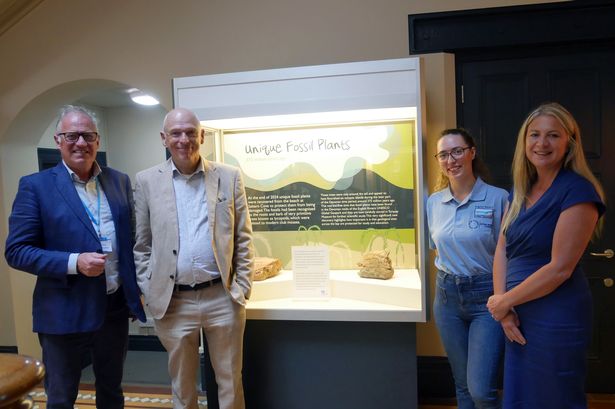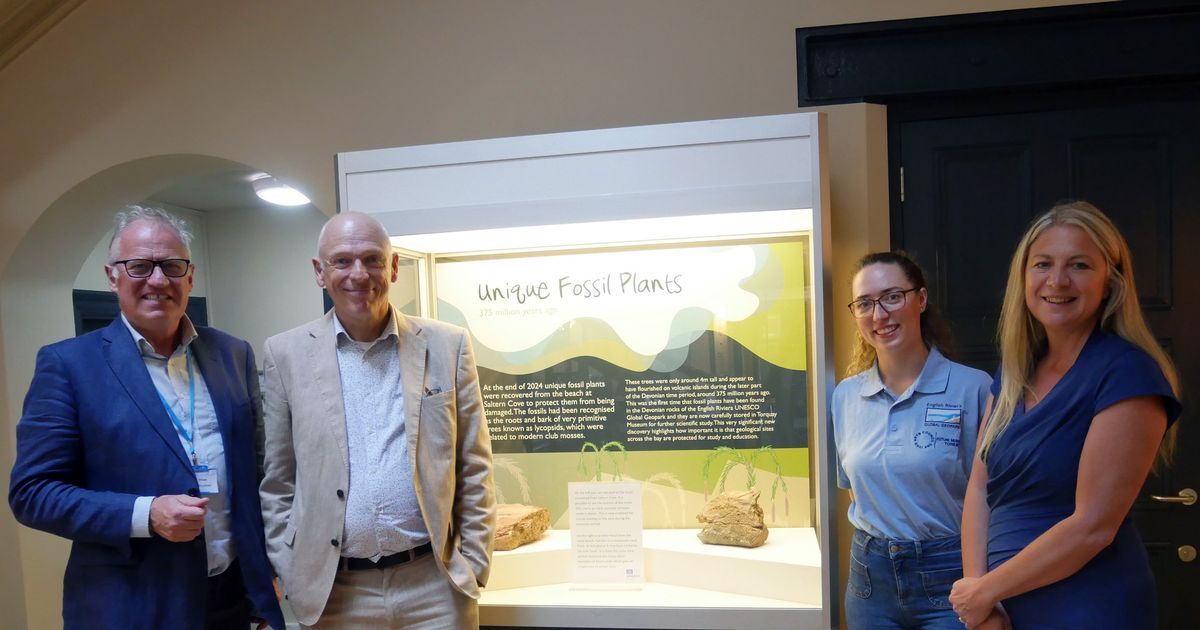It was found in 2024 by Dr Kevin Page The 377 million year old tree fossil from Saltern Cove, now on display at Torquay Museum (Credit: Submitted).
The 377 million year old tree fossil from Saltern Cove, now on display at Torquay Museum (Credit: Submitted).
A prehistoric tree fossil, believed to be more than 370 million years old, has been unveiled to the public after being carefully recovered from a cliffside on the South Devon coast.
The specimen, discovered at Saltern Cove in the English Riviera UNESCO Global Geopark, went on display on Saturday, September 6, at Torquay Museum.
The fossil is thought to come from a primitive tree known as a lycopsid, which grew no taller than four metres and bears a striking resemblance to today’s Torbay palm. Scientists say it could provide the first evidence of trees thriving on a Devonian desert island.
It was found in 2024 by Dr Kevin Page, President of ProGEO and honorary senior research fellow at the University of Exeter, during a condition survey of protected sites in the area. Dr Page said: “These fossils are incredibly significant as they provide valuable insights into the prehistoric environment of Torbay, including the presence of volcanic islands with trees growing on them. This could potentially be the first record of a Devonian desert island with trees, a truly remarkable find.”
Because of the fossil’s rarity and the risk of erosion from winter storms, the Geopark’s coordinator, Melanie Border, organised a recovery operation. A specialist team of geologists carefully excavated the specimen, which was then winched up the cliff under expert supervision.
Ms Border said: “To date our Devonian age rocks have only provided evidence of a marine environment but we now have evidence of volcanic islands and trees too. What’s truly remarkable is that this is not just a first for us but a global first, giving the discovery true international significance.”
The fossil, now under the care of Torquay Museum’s curators, is being displayed in the museum’s entrance lobby while it undergoes further academic study. Alexandra Hemming, senior executive at the museum, said: “Caring for this ancient tree fossil is a real privilege. This amazing fossil is one of the rarest from the Devonian period and certainly the most significant item we have in our collections from this era.”
A public event to mark the display included a geology introduction by Dr Page and the launch of a YouTube mini-series exploring the region’s deep-time history.
The fossil forms part of a wider collection recovered from Saltern Cove and highlights the international importance of the English Riviera UNESCO Global Geopark, which spans Brixham, Paignton and Torquay along with the bay’s marine environment.
Further information is available at www.torquaymuseum.org and www.englishrivierageopark.org.uk.
